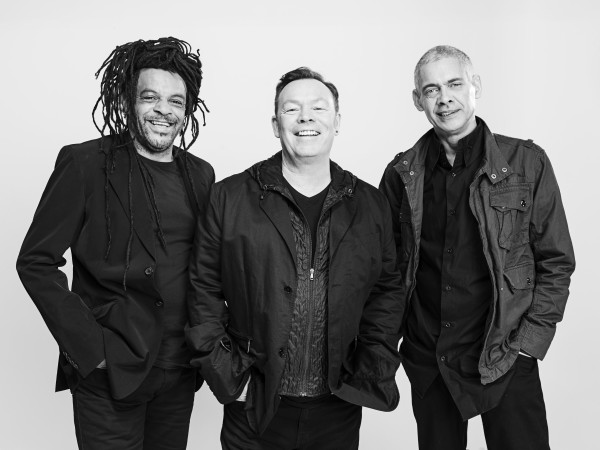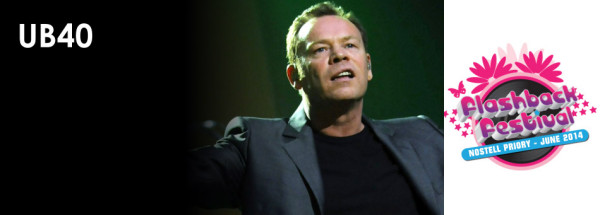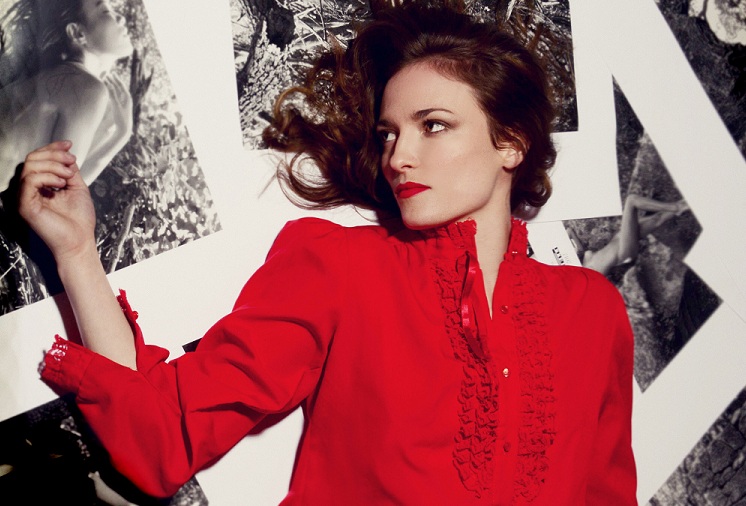A CHAT WITH: ALI CAMPBELL (UB40)
aaamusic | On 29, Mar 2014
British singer and songwriter Ali Campbell was the lead singer and founding member of reggae band UB40, which has sold over 70 million records world-wide. He’s extensively toured the world for 30 years. Interviewer Anthony Weightman chatted to him ahead of his April 2014 tour.
Anthony Weightman: Ali, my best wishes to you in April when you tour in Spain, Dubai, Malaysia, New Guinea and South Africa. Would you like to say a few words about these travels?
Ali Campbell: We have a new album which is out for 2014 and we have a world tour to go with it. We’re going to Kuala Lumpur, Papua New Guinea, The Solomon Islands and Fiji. All around the world and we’re finishing off in Hawaii next year. Promoting reggae as I have done all my career. I’m looking forward to it.
Anthony Weightman: You don’t seem to have lost your marvellous Birmingham accent. There are people who feel that regional accents are an important part of the character and personality of the UK. Is that something you feel strongly about?
Ali Campbell: Brummies do get a bit of a raw deal as far as their accents are concerned. Portrayed as pigs, for some reason. Birmingham is a pretty dark place but the people are very cheerful. Birmingham made me, but I don’t live there any more. I live in Christchurch, looking over at the Isle of Wight.
Anthony Weightman: From the sixties onwards, Birmingham became a hugely busy and influential music scene which was comparable with Liverpool. There were internationally successful groups: The Move, Traffic, The Moody Blues, The Spencer Davis Group and The Electric Light Orchestra and, as you entered the seventies, this included UB40, Judas Priest, Black Sabbath and Led Zeppelin. Could I tempt you to paint an even bigger picture than this?
Ali Campbell: We used to rehearse at a place called the Rum Runner and next door would be Duran Duran. We ‘shirt tailed’ the two tone movement. We were never a ska band. We were horrified at being in a ska band because we were so into reggae. We just knew ska as what came before reggae. I started UB40 to promote reggae. It was only our area where reggae was being played, Balsall Heath, which was predominantly West Indian.
Anthony Weightman: What was going on in surrounding areas like leafy Edgbaston? It was a completely different music scene, was it?
Ali Campbell: Completely different. I really wasn’t really aware of Garry Glitter and Marc Bolan.
I knew about the Jackson Five. Really my music was the reggae music of the streets where I grew up. But I come from a folk music background. My Dad was a folk singer and had one of the biggest folk clubs in Europe in the 60s. Like all kids I went in the exact opposite direction from my parents. There wasn’t enough loud bass in folk music for me. I love and understand reggae.
Anthony Weightman: Going back to your beginnings, I know you’ve said that UB40 were “unemployed kids made good”. The depth and length of the recession that’s been around since 2008 has been particularly tough for young people. How do you feel about the situation they’ve found themselves in over the last six years?
Ali Campbell: Well, you know, nothing’s changed! In thirty years we’re back to 1 in 10 unemployment. We’re still being ruled by a bunch of nincompoops. So, nothing’s changed. It’s a joke, but it’s what England has become. Sadly, when we inherited hip hop, we also inherited a self imposed segregation as well. Our dream of the rainbow nation fizzled out in the mid nineties. It’s a shame because we all thought things were going to get better. We were optimists, but now I’m just a cynical, twisted old man.
Anthony Weightman: You may have been joking at the time, but you did say earlier this year that “the only problems I’ve ever had is with white middle class journalists.” Seriously though, have you had problems with journalists?
Ali Campbell: It’s only that people wouldn’t accept the fact that a white kid could sing reggae and that a multi racial band could be bona fide. I’ve been lucky enough to work with all my heroes. We’ve worked with so many Jamaican artists, and they get paid if we cover their songs and they respect what we’re doing. So, we’ve never had a problem with Jamaicans anywhere.
Anthony Weightman: You’ve said you don’t like rock music. Is there a reason?
Ali Campbell: What I meant was I get slightly agitated and annoyed and maybe a bit aggressive when I hear that FM light rock music. I don’t like that. But, of course, I love real ‘rock and roll’. Elvis Presley and The Beatles.
Anthony Weightman: I was amused by your story that you wrote ‘Rat In My Kitchen’ because you were actually invaded by vermin, but that some fans misinterpreted this and gave it a political meaning. Do you think this sort of thing happens quite a lot with lyrics?
Ali Campbell: That was journalists! Of course. All the time. My favourite lyrics in the world were by Lee Perry: “If you are a big tree, we are the small axe”. That’s the most fabulous lyrics. He was talking about the big three: Prince Buster, Laurel Aitken and Coxsone Dodd. It’s a play on words. Things get misconstrued. People look into things too deeply. The ‘Rat In My Kitchen’ had nothing to do with Margaret Thatcher.
Anthony Weightman: I understand that, prior to a studio recording, you like to do as much preparation as possible because this helps with spontaneity in the studio and there’s the chance of getting things right immediately with the first take. This sound idyllic, but how easy is it to actually achieve?
Ali Campbell: It hardly ever happens. The problem is when you do a good demo. People go: “Wow, that’s great. Now re-record it. Do it again. Do it greater.” Then you’re in trouble. That’s always difficult. There’s something called ‘demo love’ that most people suffer from. You can never capture what you had in the first place. I only really work four or five hours in the studio. I’ve done all the marathon sessions in the old days with sixteen hands on the mixing desk and going on till four in the morning. But, I don’t think that’s very productive. I think you should be in there for as short as time as possible, playing and singing at your best. Having things all ready before I go into the studio is the most important to me.
Anthony Weightman: The one thing associated with both reggae music and Jamaican culture which is looked upon as unacceptable, in some societies, is the use of marijuana. Over the decades this has been a long term legal and medical controversy worldwide. Do you think the debate on this subject is unlikely to go away?
Ali Campbell: There are much worse things to worry about. Misogyny and homophobia are far bigger problems. It’s not just in reggae, it’s in modern music as a whole. Especially in hip hop and reggae though, unfortunately. I think if they were smoking marijuana they’d chill out and wouldn’t be so upset about women and gay people. The only way that marijuana harms you is if some of it drops on your head. What we should be worrying about is alcohol and tobacco. That’s what’s killing us. Tobacco is a disgusting thing. They make so much in tax and VAT. Marijuana doesn’t fur up your arteries. It’s like making potatoes illegal. It’s a nonsense. It’s a complete nonsense. Alcohol accounts for most of the violence and stupid behaviour in out society. You don’t get violent pot heads. It just doesn’t happen.
Anthony Weightman: I’ve tried to briefly summarise the positive aspects of reggae music. It has a great beat to dance to. It’s spiritual in its sound and the lyrics inspire, motivate and remind us of where we’ve come from. It encourages love, peace, freedom, unity and racial harmony, and these are things that are important or essential to all of us. Is there anything I’ve missed out that you’d like to add?
Ali Campbell: You’ve put it in a nutshell. It’s music of peace, love, harmony and unity. All around the world there’s a reggae fraternity, especially as we become more homogenised, and music does too. Reggae is influencing everywhere. You can find the beats in The Philippines, Africa, Australia and New Zealand. In the South Pacific to Hawaii and the West Coast and East Coast of America. Reggae is everywhere in all different guises. It’s the most influential music of our times.
Anthony Weightman: Is there one specific piece of advice that stands out as being the most important you’ve ever been given as a musician?
Ali Campbell: If you’re a professional musician, it’s to surround yourself with people you can trust and be mindful that you must trust people that you’re working with. It’s sad, but it’s always the same story. Wherever there’s money, there’s going to be treachery. I know all about it. Accountants, business managers and band members.
Anthony Weightman: Is there anyone you admire that you’d like to play with that you haven’t played with so far.
Ali Campbell: There are millions of people I’d love to play with. A single with the Fun Lovin’ Criminals will be coming out soon. I admired those guys. I’ve done a version of Prince‘s ‘Purple Rain’ in reggae. That’s wicked. It’s coming out on Radio Riddler.
Anthony Weightman: Can you remember a gig which has been particularly demanding for you in terms of planning and preparation?
Ali Campbell: I remember when we did the Live 8 show and we had about a dozen Indian drummers in beautiful costumes. We did the song ‘Reasons’ which had the Indian singer Hunterz. The drummers were fabulous. I put my ‘in ears’ in and I put my jacket on top. One of the wires went down my sleeve, so I couldn’t move my arm as I went on stage. I’d unplugged myself and I wasn’t able to hear anything. That was in front of a billion people! Another time I was at Finsbury Park and I fell through a hole in the stage as I sang a song called ‘Groovin’ Out On Life.’ Down I went and I shot right up again.
Author: Anthony Weightman




